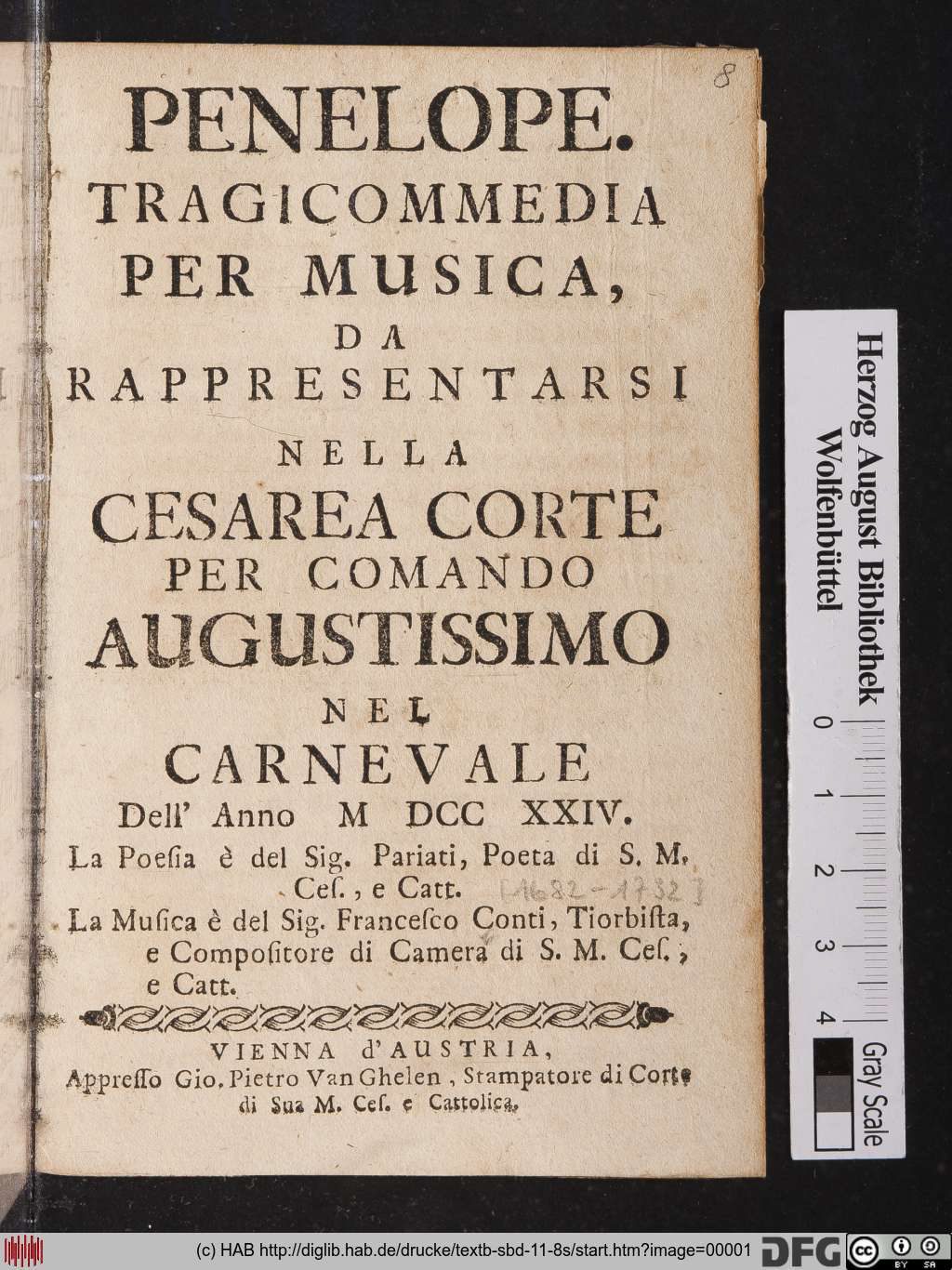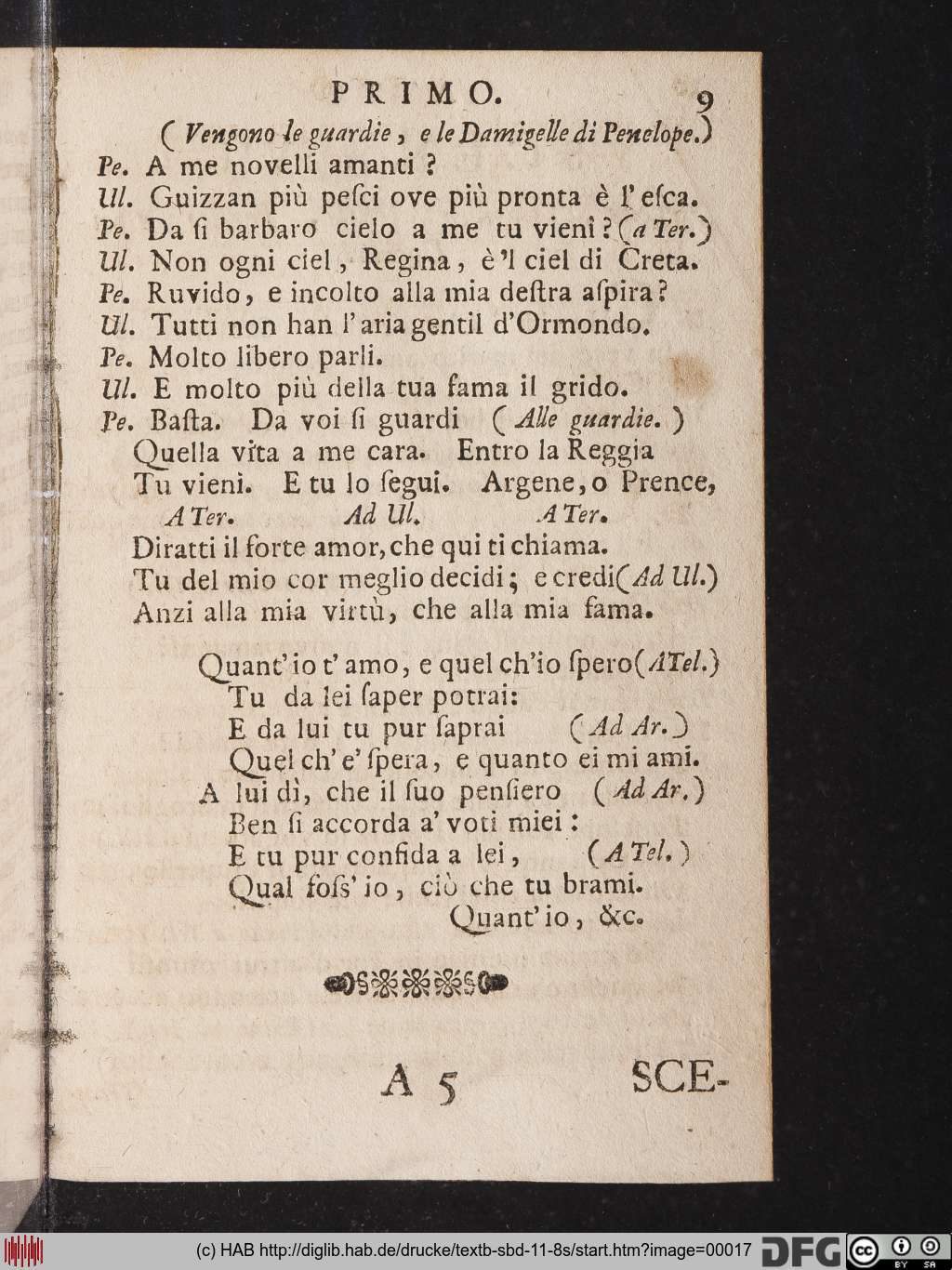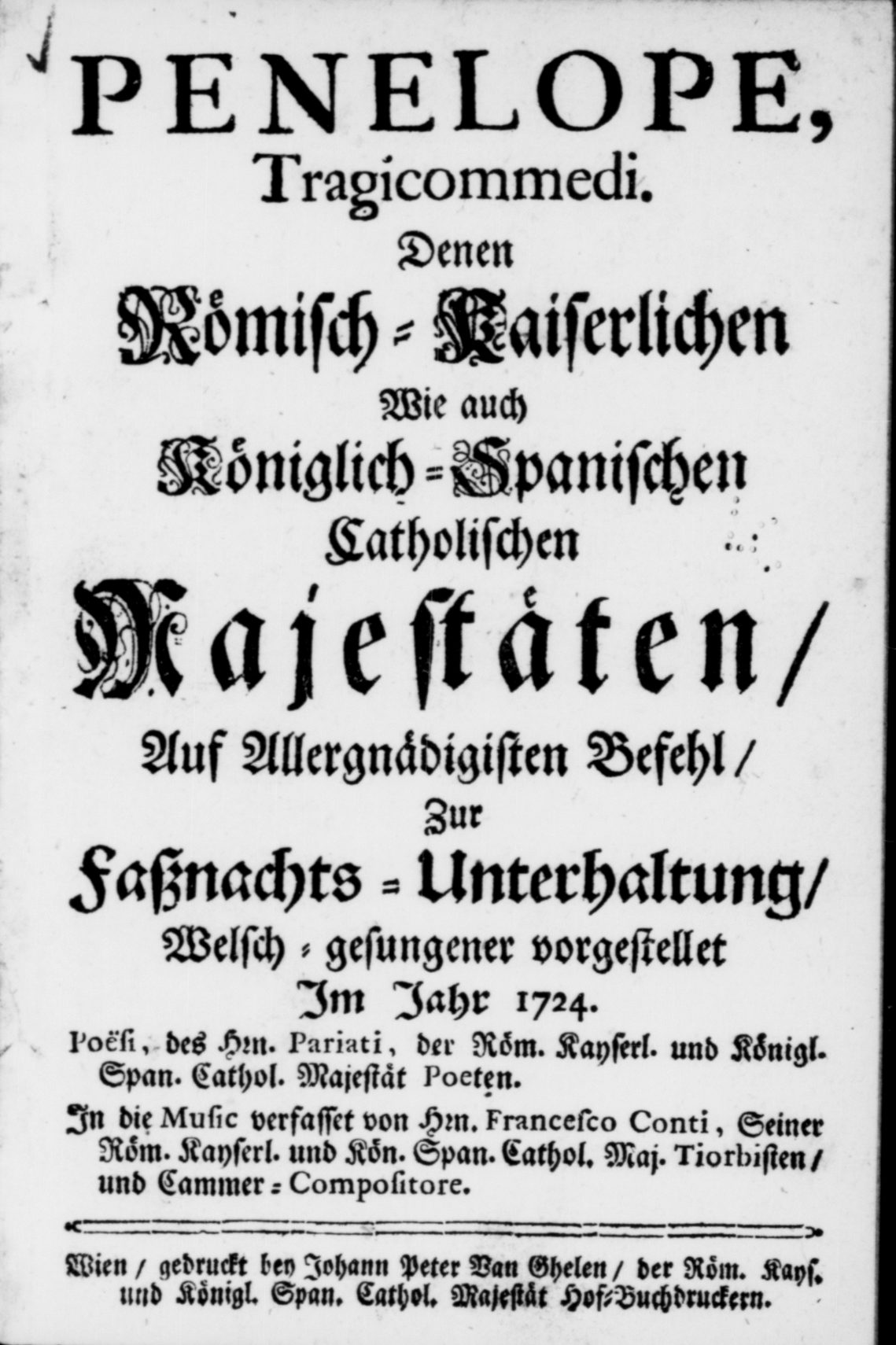Pietro Pariati
Librettist, born 27.3.1665 in Reggio (Emilia, Italy), died 14.10.1733 in Vienna.

Pietro Pariati initially made a career as a lawyer and secretary to the Duke of Modena, where he had also attended university. A diplomatic journey with the Duke of Modena to Spain in 1695 proved to be Pariati's downfall: diplomacy was apparently not his strong suit, and his legal knowledge did not prevent him from behaving scandalously on this business trip and insulting a minister – quite significantly, it seems. For this, he was imprisoned in Modena for three years and was then dishonorably discharged and banished. His academic career was now over and he had to reinvent himself professionally, as his university degree from Modena was not recognized in other regions – although he was still allowed to call himself a “doctor”, he could no longer practise his profession. As he was already quite old, at 35, his only option was now the uncertain career of a freelance poet, making him dependent on patrons and at the mercy of public taste; it was a risky decision to make, as he had previouly written only a handful of poems (some of which were inscribed on the wall of his prison cell) and he was completely unknown as a poet.
In 1699 he went to Venice, where he probably sought contact with Annibale Visconti, who was known to his family and who may have arranged Pariati's first stage play for Milan. From 1705, Pariati formed a “collaborative partnership” with Apostolo Zeno as an opera librettist – a symbiosis that would later continue at the Viennese court: Zeno contributed the material and plot to the libretti they worked on together, while Pariati took care of the versification. In 1714, Pariati was appointed imperial court poet by Emperor Charles VI, and from 1718 he worked intensively with Zeno, who was now also employed at the Viennese court, in the tried and tested division of labor. The poet duo was replaced by Pietro Metastasio as the new court poet in 1729.
In Venice and Vienna, Pariati wrote libretti for all the common musico-dramatic genres: operas, serenatas, oratorios and cantatas. Pariati was particularly successful in the comic genre, i.e. with buffo scenes, intermezzi and tragicomedies, where he inspired composers and delighted and amused audiences with his whimsical characters, his fun dialogues with numerous parodic allusions to the serious genre, a broad stylistic spectrum and plenty of wit. Penelope, premiered at the Viennese court during Carnival 1724, was Pariati’s last libretto for a tragicommedia in musica.
The libretto for Penelope was printed by Johann Peter van Ghelen in Vienna in 1724. In addition to the Italian text, the printed libretto also contains a brief summary of the plot as well as notes on the performers, stage sets and scenic actions. Recitatives and arias are typographically separated from each other by the arias being indented; scene instructions appear in brackets and italics.


© Herzog August Bibliothek Wolfenbüttel; http://diglib.hab.de/drucke/textb-sbd-11-8s/start.htm
At the same time, van Ghelen also published a German translation of the libretto:

Library of Congress, Music Division, https://lccn.loc.gov/2010665615
For the edition, production and subtitles of PENELOPE 2025, we use a text-based translation in modern German by Alfred and Christine Noe.
Literature
Dubowy, Norbert, Art. "Pariati, Pietro", in: MGG Online, ed. Laurenz Lütteken, New York/Kassel/Stuttgart 2016ff, first published 2005, online published 2016, https://www.mgg-online.com/mgg/stable/51630
Seifert, Herbert, "Pietro Pariati poeta cesareo", in: Giovanni Gronda (ed.), La carriera di un librettista: Pietro Pariati di Lombardia, Bologna 1990, pp. 45−71.
Strohm, Reinhard, "Pietro Pariati librettista comico", in: Giovanni Gronda (ed.), La carriera di un librettista: Pietro Pariati di Lombardia, Bologna 1990, pp. 73−111.




